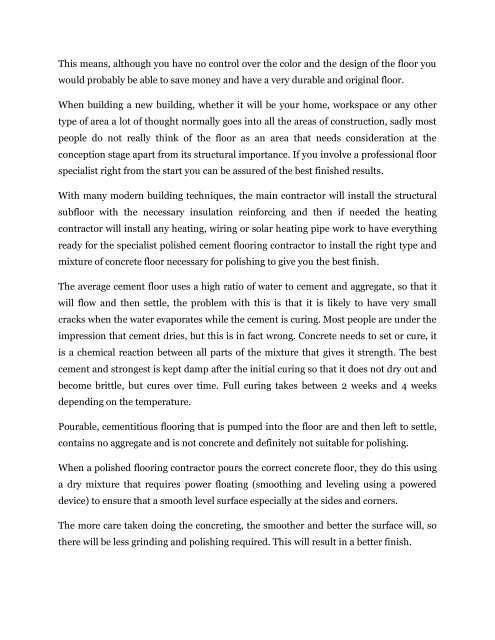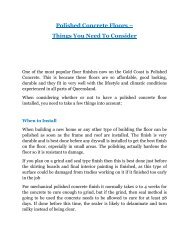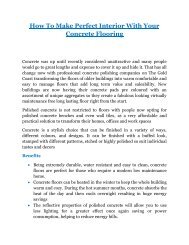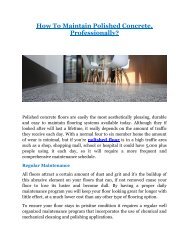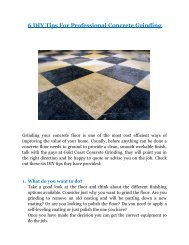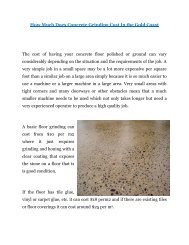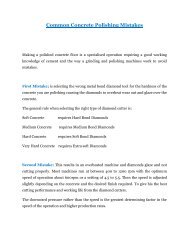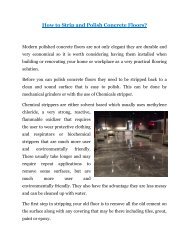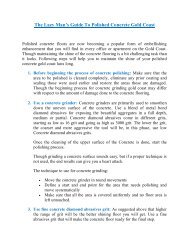Why Hire a Specialist To Polish Your Concrete Floors
Polishing your own concrete floor is possible for most handyman types, you can hire the machinery necessary to do so and search the internet on the right way to do it, but like many do it yourself jobs it is a good idea to think seriously about having a specialist to do the job for you to avoid being disappointed with the finished job.
Polishing your own concrete floor is possible for most handyman types, you can hire the machinery necessary to do so and search the internet on the right way to do it, but like many do it yourself jobs it is a good idea to think seriously about having a specialist to do the job for you to avoid being disappointed with the finished job.
Create successful ePaper yourself
Turn your PDF publications into a flip-book with our unique Google optimized e-Paper software.
This means, although you have no control over the color and the design of the floor you<br />
would probably be able to save money and have a very durable and original floor.<br />
When building a new building, whether it will be your home, workspace or any other<br />
type of area a lot of thought normally goes into all the areas of construction, sadly most<br />
people do not really think of the floor as an area that needs consideration at the<br />
conception stage apart from its structural importance. If you involve a professional floor<br />
specialist right from the start you can be assured of the best finished results.<br />
With many modern building techniques, the main contractor will install the structural<br />
subfloor with the necessary insulation reinforcing and then if needed the heating<br />
contractor will install any heating, wiring or solar heating pipe work to have everything<br />
ready for the specialist polished cement flooring contractor to install the right type and<br />
mixture of concrete floor necessary for polishing to give you the best finish.<br />
The average cement floor uses a high ratio of water to cement and aggregate, so that it<br />
will flow and then settle, the problem with this is that it is likely to have very small<br />
cracks when the water evaporates while the cement is curing. Most people are under the<br />
impression that cement dries, but this is in fact wrong. <strong>Concrete</strong> needs to set or cure, it<br />
is a chemical reaction between all parts of the mixture that gives it strength. The best<br />
cement and strongest is kept damp after the initial curing so that it does not dry out and<br />
become brittle, but cures over time. Full curing takes between 2 weeks and 4 weeks<br />
depending on the temperature.<br />
Pourable, cementitious flooring that is pumped into the floor are and then left to settle,<br />
contains no aggregate and is not concrete and definitely not suitable for polishing.<br />
When a polished flooring contractor pours the correct concrete floor, they do this using<br />
a dry mixture that requires power floating (smoothing and leveling using a powered<br />
device) to ensure that a smooth level surface especially at the sides and corners.<br />
The more care taken doing the concreting, the smoother and better the surface will, so<br />
there will be less grinding and polishing required. This will result in a better finish.


